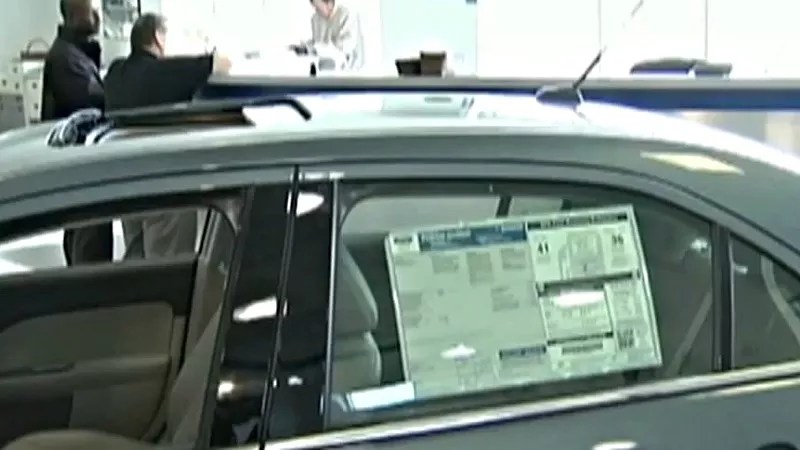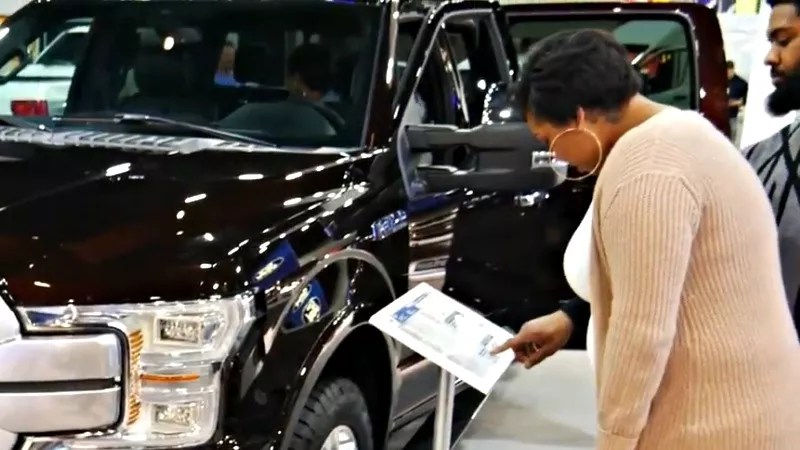
Audio By Carbonatix
Editor’s note: In July, a judge dismissed a lawsuit filed by the Colorado Automobile Dealers Association in an attempt to stop the imposition of new vehicle-emission standards. Continue for our previous coverage.
Earlier this year, the Colorado Automobile Dealers Association filed a lawsuit against three state agencies over the decision to use vehicle emission standards from California rather than developing rules specifically tailored for the conditions here – including our love affair with the sport-utility vehicle.
President Donald Trump is no fan of California emission standards, either. He’s called for a freeze on tougher federal standards in 2020, creating a conflict with Cali that prompted seventeen automakers to send him a letter on June 6 asking that negotiations to close the gap be restarted – a pitch the White House has rejected.
Meanwhile, Simon Mui, a senior scientist with the Natural Resources Defense Council, which advocates for the rules, feels that Colorado consumers have nothing to fear from the California standards. “The irony here is that drivers of SUVs and light trucks are the ones who will benefit most on fuel savings because of these standards,” he says.
Yes, Mui lives in California; he’s based in the Bay Area. But NRDC has personnel in Colorado who worked with state officials in the run-up to last November’s unanimous vote by the Colorado Air Quality Control Commission to adopt so-called clean-car standards that mandate less pollutants and greater fuel economy for vehicles, including SUVs and light trucks. And while CADA president Tim Jackson estimates that the regs will add $2,110 to the price of the average vehicle in Colorado, Mui says any outlay (and he thinks the actual cost would be about half the size of Jackson’s prediction) would be more than offset further down the road.
“The federal government basically rolled back clean-car standards nationally,” he points out; Colorado Attorney General Phil Weiser has filed a brief in support of a separate suit over the move. “What that meant for Colorado is the marketplace would be getting dirtier thanks to less fuel-efficient cars – and the Colorado Department of Public Health and Environment estimates that would cost Coloradans between $7 billion and $9 billion in additional fuel payments for those model years going forward.”
To prevent that from happening, Colorado imposed the California standards, which call for reducing pollutants of all kinds, including greenhouse gas emissions, and increasing fuel economy. The result, Mui allows, “is meant to not only save Coloradans money at the pump, but also tackle things like air quality and climate pollution.”
It will cost more up front to achieve these goals, which is why Jackson refers to the regulations as a tax. And while they’re clearly intended to influence Colorado drivers to consider smaller cars with higher fuel economy, he maintains that locals haven’t rushed to replace their SUVs and trucks with more planet-friendly models. The result, he believes, will cause people to stay in their current, older vehicles longer, thereby worsening the pollution problem rather than improving it.

In Mui’s opinion, this viewpoint is colored by discomfort over the changing marketplace. “Dealers aren’t looking at what saves consumers money in the long term,” he feels. “They’re in the business of selling cars, not in the business of selling fuel – and that’s ultimately why I feel the dealers are against this. It’s a sort of narrow look at their customers’ payments. The CDPHE figure for additional costs for this technology in 2025 is $1,100. But they estimate that it would result in saving $3,000 in fuel over the vehicle’s lifetime. That’s a big deal to me.”
Even more money on fuel costs would be saved if more people converted to electric vehicles – and Mui says old stereotypes about such rides driving poorly in the mountains are woefully out of date. As for why most Colorado dealers don’t more energetically push electric vehicles to their customers (they currently account for only about 3 percent of autos sold in Colorado), Mui has a theory.
“There’s very little maintenance cost for these vehicles, and that’s one of the major streams of income for dealers – that stream of income from having a car break down,” he says. “Internal combustion engines need a lot of repairs, but electric vehicles, because of electric motors and regenerative braking, where you don’t have to change your brakes much at all, have very few mechanical problems that require drivers to bring them back to the dealership for repairs. I think that’s one reason why dealers want to stick with the old way of doing business and not update their models.”
Nonetheless, automakers are upping the number of electric vehicles they’re making, and as a result, dealers will have to “make the transition,” in Mui’s words, over the next few years.
As for the extra $1,100 or so added to the price of a car because of emission standards, Mui encourages potential consumers to put it into perspective. “If you’re getting car mats, those can cost $500 or $600,” he notes. “Tinting your windows is basically over $1,000. But if you’re spending $1,100 to get $3,000 in fuel savings, you’re going to be a lot better off.”
Whether the same can be said for Colorado car dealers is another question. But they didn’t get any help from the state legislature. During this year’s legislative session, Senator John Cooke, a Republican from Greeley, introduced SB 19-53, popularly known as “California Motor Vehicle Emission Standards.” The bill’s summary notes that it prohibited “the air quality control commission from adopting motor vehicle emission standards that are more stringent than federal standards and from adopting the California motor vehicle emission standards and test procedures unless they are the same as the federal standards.” But on February 14, the proposal was permanently withdrawn.
